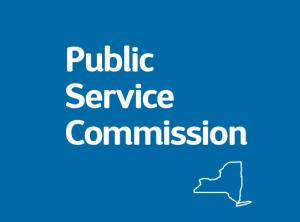New York Reverses Order on AMR Opt-Out Fees

Reversing a 2014 order in which it had authorized a combined electric and natural gas utility, Central Hudson Gas & Electric Corporation, to begin imposing a separate monthly charge on those customers who choose not to participate in the utility's automated meter reading (AMR) project, the New York Public Service Commission instructed the company to cease such assessments.
The opt-out fee had been set at $6 per month. The 2014 directive had come as Central Hudson was in the midst of deploying smart meters throughout much of its service area. However, some customers had expressed concern about the long-term effects of exposure to the radiofrequency (RF) waves emitted from the AMR equipment. Citing a couple of studies that indicated there might be a connection between RF and some types of cancer, they questioned the safety of the advanced metering technology. In its decision of three years ago, the commission largely dismissed those studies as outliers. It reported that the vast majority of scientific analyses of AMR revealed no definitive nexus between RF and health ailments.
Nevertheless, out of an abundance of caution, the commission told Central Hudson that it must accommodate customer requests not to have an advanced meter installed at their premises. At the same time, though, the commission had ruled that because the utility will incur certain costs related to manual meter reading that it would not have incurred with meters capable of being read remotely, the company could charge customers opting out of AMR both a one-time nonrecurring fee and an ongoing monthly opt-out charge. Only the latter is affected by last week's order. That is, Central Hudson is still permitted to assess the one-time fee when a customer elects not to have AMR equipment on their premises.
In changing course on the monthly opt-out charge, the commission stated that a review of the utility's "specific utilization strategy" for AMR meters showed that there actually was little difference in labor costs between the smart meters and conventional digital meters. Finding that few cost savings were achievable from one type of metering technology over another, the commission said there simply was no justification for the recurring opt-out charges. However, the commission stopped short of requiring Central Hudson to reinstall old-fashioned electromechanical meters for a customer who does not want AMR equipment.
The commission reasoned that because such meters are now technologically obsolete and no longer being manufactured, it did not make sense to compel their future use. But, the commission ruled, the utility should make available "noncommunicating, solid-state" meter options to those customers seeking to opt out of the AMR program. The company was allowed to charge such customers a one-time fee if such installations take the place of an already existing AMR unit.
The commission commented that it still saw no convincing evidence that the small amount of RF waves emanating from smart meters was enough to pose any significant health risk. The element of risk should have no bearing on the ongoing opt-out charges anyway, though, the commission said. It explained that the opt-out charges had been approved in the first place because of the utility's claims of added costs involved in reading and maintaining traditional meters versus AMR equipment. Since that cost differential had now been shown to be of no consequence, the commission concluded that the monthly opt-out charges were no longer warranted. Re Central Hudson Gas & Electric Corp., Case 14-M-0196, Oct. 20, 2017 (N.Y.P.S.C.).



